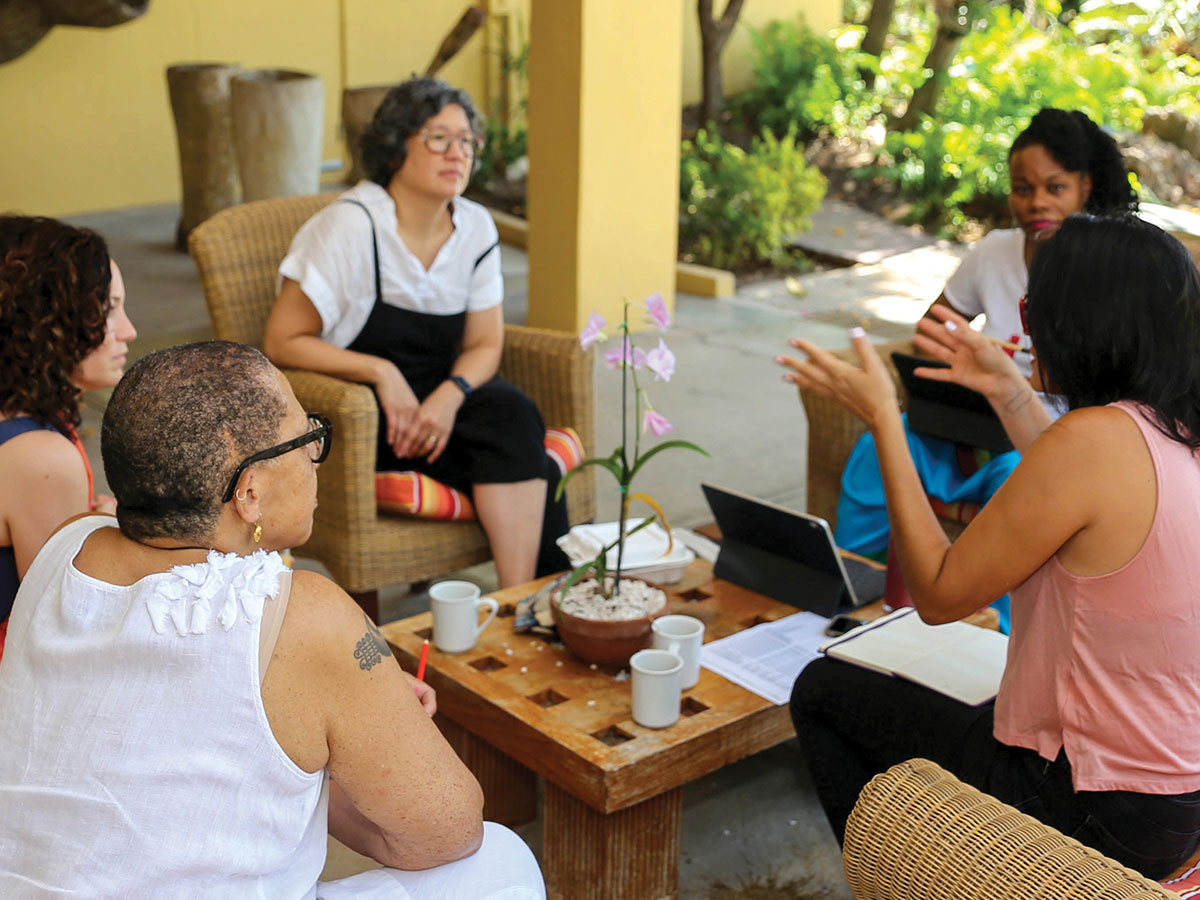
This past summer, I revisited a perennial question: What are funders doing with the reports that grantee organizations are required to submit as per their grant agreement? The Center for Effective Philanthropy’s Grantee Perception Report has found that the survey question related to the value of reporting processes was the single lowest-rated question year after year on the survey. Grantees report that the process, on average, takes eight hours per year, per grant. The reporting process is not an efficient use of time.
On the funder side, the functional problem goes something like this: the reports arrive too late to be useful for renewal funding; the information that the reports convey may not be used to inform decision making; the metrics shared in written format are not relevant to evaluation and assessment needs; the written report is redundant to staff knowledge.
Jessica Bearman has been prodding this problem for a long while. “When I ask grantmakers, ‘Why do you require reports?’” she wrote in a 2015 GrantCraft blog post, “They tell me that reports are important for accountability or that reports are our mechanism for learning. But when I ask the question differently—’What do you do with the reports that you receive?’—I often get sheepish grins in response. As one grantmaker told me, ‘In theory, I’d be using them to know more about our grantmaking effectiveness. But in reality, I don’t have any time to sit down and be thoughtful about the reports. That pile just sits there making me feel guilty.’”
In 2021, I was charged with assessing the process at Arcus Foundation, taking a two-pronged approach:
- Explore how Arcus uses reports internally
- Collaborate with sector partners to learn about alternate approaches to grantee reporting
Interrogate the question at Arcus
During a standing weekly meeting with two Arcus program officers, we discussed grant renewals and report submissions and griped about the occasional backlog of reports pending internal review. I discovered that the program officers rarely referenced the content in the reports to write up renewal funding requests. They shared that the reports arrived after the renewal proposal was due to the foundation to be submitted to avoid a funding gap for the nonprofit, and often the content in the grant report was stale, or the narrative content did not align with Arcus’s strategic objectives and would not enhance the content of the new funding request. In cases where the content wasn’t being used for a new funding request, the goals and indicators may not align to Arcus’s impact assessment metrics.
We then discussed how qualitative and quantitative report data could be collected more effectively for impact assessment. We imagined the benefit of sharing collected lessons learned from grant reporting with applicants, grantees, and peer funders.
We attempted to brainstorm a solution for the Arcus report review process and knew we needed to find out what other funders and grantmakers were doing
Learn and collaborate with peers
When presented with a grants management-related problem, my instinct is to turn to the wisdom of my peers. I scanned PEAK’s CONNECT forum and learned that Arcus was not alone in grappling with this burdensome zombie practice. I asked PEAK colleagues if they wanted to talk about alternatives to current reporting methods, and 118 people said yes. Blanch Vance, grants manager of The Grove Foundation, and I hosted the first meeting of the Oral and Alternate Reporting Working Group in August of 2021. Steven Casey from MacArthur Foundation, Kerry McHugh from The Helen J. Serini Foundation, Elaine Mu from General Service Foundation, Julia Plume from Internet Society Foundation and my colleague at Arcus, Glo Ross, volunteered to share how they had experimented with oral and alternative reports, what they had learned, and why there are benefits to consider changes to the status quo.
The list of questions from participants expanded:
- What is the foundation doing with the information it requests?
- Do we accept reports grantees have submitted to other funders for the same program or project?
- How is the information in the oral reports used to inform our grantmaking? Did we have to adjust any other grantmaking processes as a result of implementing oral reports?
- Has anyone else’s board brought up the idea of asking for video reports from grantee partners?
- What are the benefits of using a hybrid model? For example, offer an oral reporting option for narrative questions and ask the grantee to submit some data (such as financials) or other metrics that are important for program evaluation.
At Arcus, we began discussing the idea of alternative reporting methods prior to the COVID-19 pandemic as the sector as a whole started talking about deeper, impactful changes to grantmaking processes. We started asking grant applicants about how many hours it took them to complete our reports and learned it took them longer than we thought. When we conducted focus groups with program staff about the value of written reports, respondents stated that their most valuable information comes from grantee conversations.
One organization that is part of the work group waived narrative reports entirely since March 2020 (except for expenditure responsibility). No one has missed them. Many participants have received grantee feedback expressing gratitude and some surprise that funders were so open to changes that would help them achieve their shared goals. This was only possible through collaborative learning.
We all learn together and we are each practitioners and emergent experts who strive for efficiencies through innovation and creativity. Blanch and I will continue to facilitate the grantee reporting learning journey in 2022 in a larger context so that the group can better understand and explore new ways to center the grantee experience while also meeting staff needs. We aim to develop more collaboration, more learning, and more impactful connections across the sector. New and alternative practices have the potential to transform philanthropic processes. How your organization chooses to be in relationship with nonprofits is reflected in your reporting process. What kind of relationship is your reporting information exchange cultivating?
The Oral and Alternate Reporting Working Group is open to everyone. Click here to register for their next meeting, which will be held on February 2, and will explore Trust-Based Philanthropy’s approach to context building and key takeaways from funders that currently accept alternative methods for reporting.
Photo by Christina Morillo from Pexels



